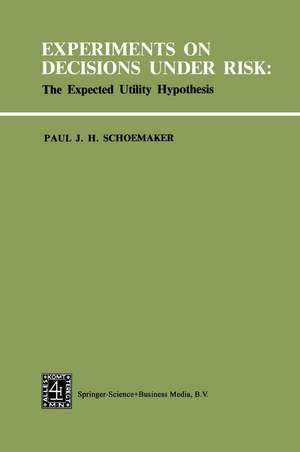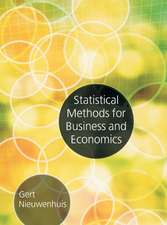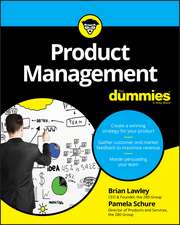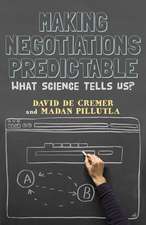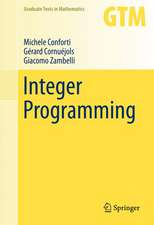Experiments on Decisions under Risk: The Expected Utility Hypothesis
Autor P.J.H. Schoemakeren Limba Engleză Paperback – 23 aug 2014
Preț: 384.09 lei
Nou
Puncte Express: 576
Preț estimativ în valută:
73.50€ • 76.30$ • 61.29£
73.50€ • 76.30$ • 61.29£
Carte tipărită la comandă
Livrare economică 25 martie-08 aprilie
Preluare comenzi: 021 569.72.76
Specificații
ISBN-13: 9789401750424
ISBN-10: 9401750424
Pagini: 236
Ilustrații: XXIII, 211 p.
Dimensiuni: 152 x 229 x 12 mm
Greutate: 0.32 kg
Ediția:Softcover reprint of the original 1st ed. 1980
Editura: SPRINGER NETHERLANDS
Colecția Springer
Locul publicării:Dordrecht, Netherlands
ISBN-10: 9401750424
Pagini: 236
Ilustrații: XXIII, 211 p.
Dimensiuni: 152 x 229 x 12 mm
Greutate: 0.32 kg
Ediția:Softcover reprint of the original 1st ed. 1980
Editura: SPRINGER NETHERLANDS
Colecția Springer
Locul publicării:Dordrecht, Netherlands
Public țintă
ResearchCuprins
Expected Utility Theory.- Alternative Descriptive Models.- A Positivistic Test of EU Theory.- An Experimental Study of Insurance Decisons.- Statistical Knowledge and Gambling Decisions.- Risk Taking and Problem Context in the Domain of Losses.- Epilogue.
